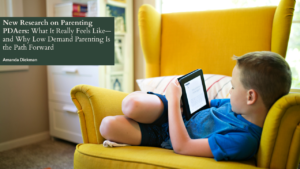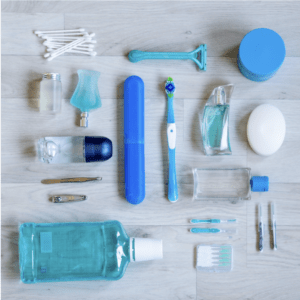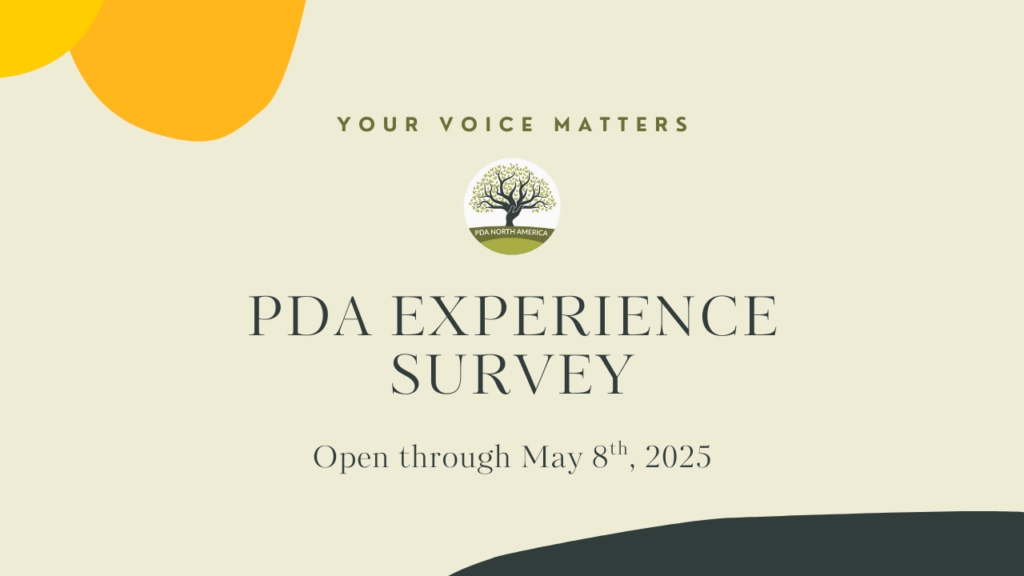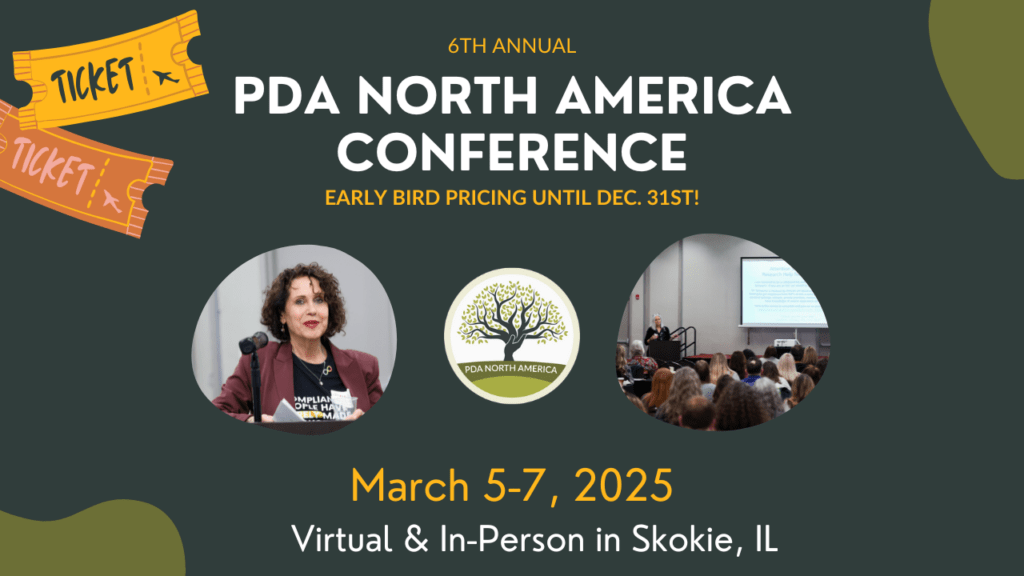Regardless of age, interpersonal stress is a hallmark of PDA. It can be possible to smooth relationships by reducing triggers or, in other cases, realizing that a behavior isn’t going to go away and taking steps to limit damage from it.
As authors who are PDA ourselves and the moms of PDA kids, we know first-hand that one size doesn’t fit all with PDA and that it helps to know what the drivers are behind relationship friction.
Care warning: Discussion of narcissism.
Disclaimer: The views expressed in this article belong to the authors, and do not necessarily reflect the views of PDA North America.
Emotional Dysregulation
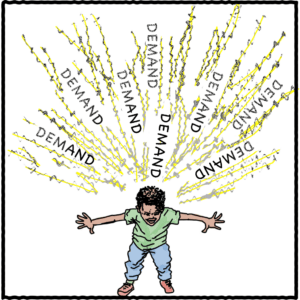
According to Web MD, emotional dysregulation is: “a term used to describe an emotional response that is poorly regulated and does not fall within the traditionally accepted range of emotional reaction. It may also be referred to as marked fluctuation of mood, mood swings, or labile mood.” [https://www.webmd.com/mental-health/what-is-emotional-dysregulation]
PDA people are so prone to emotional dysregulation that mood swings are included in PDA traits lists. For example, PDA North America places “Drastic changes in mood” third of 22 PDA characteristics. [https://pdanorthamerica.org/what-is-pda/]
In brief, our proneness to emotional dysregulation is linked to our hyper-reactivity to demands and using PDA strategies remedies things. Some effective strategies are described by PDA Society. [https://www.pdasociety.org.uk/i-am-a-pdaer/resources/workplace-adjustments/]
It’s not always emotional dysregulation
It’s common in PDA support groups for parents to presume that all fractiousness is caused by emotional dysregulation and that the remedy is to use PDA strategies to reduce triggers. However, although this is often the best course, it isn’t always.
Demand avoidance
A PDA child might have demand avoidance against speaking to a parent kindly, and this will continue regardless of how emotionally regulated they are. The solution in this example would be to focus on the demand avoidant block, since misunderstanding the root can eventually lead to complications in social interactions that, in turn, grow into dysregulation and dysfunctional dynamics.
Protective narcissism

Another potential driver is what we’ll term “protective narcissism”. We’re aware that some people object to the word “narcissism” being used too freely. However, we believe that this is something that needs airing because we’ve come across it time and time again in the PDA world and it has an active, negative impact on people’s lives.
Protective narcissism is when a child, or adult, uses self-centeredness as a coping strategy to counterbalance the high stress and social anxiety that often comes with PDA. This can display as the child, or adult, saying they don’t care about others, and that they’re better than everyone else.
Helping them regulate their emotions may reduce the fire behind their self-absorption, but it will still be there bubbling away.
As a psychological defense strategy, protective narcissism is counterproductive because, if we depend on feeling superior to others in order to feel OK, we’ll always feel insecure that someone will topple us from our pedestal. This means that, instead of reducing stress, protective narcissism makes it worse.
We believe that it’s important to steer PDA kids off this path before it sets in permanently.
Brook: I didn’t realize how heavily I was relying on putting myself in the superior position of my relationships until my mid-teens, and even then it took a long time for me to fully absorb why I was relying on clinging to that position. I now see these traits though in one of my kids and, remembering my own childhood, am careful to keep my tone neutral to indicate non-judgmental observation when I choose to point out that something he is doing is veering off too far into self-aggradation. My personal experiences taught me that cornering myself into that position made it more difficult for me to find safety in my relationships because I never allowed people to accept me for my flaws, or trust that it was better for them not to be in my life if they weren’t able to offer that acceptance.
As stated, we’ve come across a number of essentially narcissistic PDA adults who have caused harm to others, as well as being trapped in self-perpetuating anxiety.
There are no quick ways to divert protective narcissism from taking hold, but the more a child sees virtues in others and feels OK with not being perfect themselves, the better. Supporting self-esteem can be crucial here. This could include making neutral observations, and having non-judgmental conversations about the negative repercussions of narcissism.
It can also help to be non-judgmentally open about feeling hurt from what the PDA individual has said or done. Some people’s instincts are to cushion PDA kids, and even adults, from knowing that they’ve hurt them, but this presents them with a false model from which to base their social and emotional development. It can be more helpful all round to let PDA folk know if they’ve caused upset and model dealing with it constructively.
Sally: If I become emotionally dysregulated from how my daughter is speaking to me, I let her know. This tends to come out snappily because I’m in overload. Then, if I can, I take myself away to cool off. Once I’m regulated again, I apologize to my daughter for having snapped and explain that sometimes I can’t cope when she’s argumentative/not listening/calling me stupid/etc, but I never stop loving her.
When I was a kid, my own mom used to insist that she felt fine when I could loudly, and clearly sense that she was very upset. This caused me no end of self-doubt and confusion. If I’d been that way inclined, her denials would have encouraged me to believe that I was perfect and could do no wrong.
Provocative sense of humor

Many PDA people have offbeat senses of humor. This can include finding it hilarious to push other people’s boundaries. We authors can attest to sharing this cheeky quirk but have voluntarily taught ourselves to suppress it after realizing that it upsets others and drives them from us. It might sound like a no-brainer: that deliberately annoying people will, well, annoy them, but there seems to be something about our PDA brains that makes us slow to grasp the logical outcomes of our behaviors. The fact that we PDA people are wired to easily panic means we’re likely to be very upset when people react badly to us deliberately provoking them. This is evidenced in our own children who delight in pushing us but are then hurt and surprised when they succeed in stressing us out.
Even if the other person is in a perfectly good mood, we may try to get ahead of any potential future negativity by leaning on humor, especially since many PDA people are naturally sensitive to the emotions of those around them, and feel vulnerable to the unpredictability of social interactions.
The contrarian
Another example of PDA control-need in simple interactions is when the child, or adult, reacts to statements, or assertions by automatically assuming the “devil’s advocate” role. This is similar to the autistic need for covering all facets of a topic for the sake of accuracy, but we’ve found that PDA people will do this even in discussions of subjective personal narratives. For example, if someone shares that they were hurt by someone else, and without providing relevant details or reasons, the PDA person will push back by defending the opposing side.
Part of this could be panic at feeling trapped by a single point of view. Or we may feel overwhelmed by the other person’s emotions and seek to restore balance with “opposing facts.” The problem is that, when others are sharing their stories, they usually simply need space to express themselves, and having listeners defending the other side puts the narrator in the position of defending themselves instead of being able to process their own thoughts and make their own decisions.
One way to help diffuse this reaction is by not fueling their debate stance further. For example, “You (PDA person) could be right about that, but right now what I need is to talk through my feelings. Is this a good time for me to do that with you?” Asking for consent can signal safety because, as stated earlier, if we are feeling trapped by potential emotions the option to take a step back lets us know we can seek safety and re-approach when ready.
Revisiting demand avoidance
It’s worth remembering that fractiousness from a PDA kid, or adult, can be a simple case of demand avoidance in action, and not connected to them being emotionally dysregulated.
For example, if a mom says, “Write a birthday card for your grandfather.” And the kid says, “I don’t want to. Birthday cards are pointless.” The child may simply be responding with automatic, “pathological” avoidance to the demand for them to write a card. The only strategy needed here is for the parent to adopt a less-demanding communication style. E.g., “Shall we send your grandfather a birthday card?”
Summary
We PDA people, young and old, can be fractious for a variety of reasons, including emotional dysregulation, pathological-type demand avoidance, protective narcissism and having a provocative sense of humor. One size never fits all with PDA, and it pays to identify drivers behind behaviors.
About SallyCat: Sally Cat is an adult PDA author, peer researcher, illustrator, animator and public speaker. As a visual thinker and trained person-centred counsellor, she communicates the inner experience of the PDA neurotype with creative graphics. Her Facebook page, Sally Cat’s PDA page, has over 43,000 followers, including fellow adult PDAers, parents and professionals.
About Brook Madera: Brook is a mother of 3 neurodivergent boys living in the state of Oregon (U.S.A.). In February of 2022 she was diagnosed as autistic with a Pathological Demand Avoidant (PDA) profile which was alongside her existing diagnoses of ADHD and Complex PTSD.
Her three boys are also suspected PDAers, and the struggle to find a lifestyle that suits so many different needs led to her creating No Pressure PDA (website, Facebook page, Instagram, and more). The different mediums are where she explores understanding the PDA profile and other neurodivergent expressions.
Brook has a B.A. in religious studies and an M.A. in human services counseling. She enjoys working alongside other PDA content creators such as SallyCat’s PDA when they did a joint presentation for the PDA Summit 2023.
